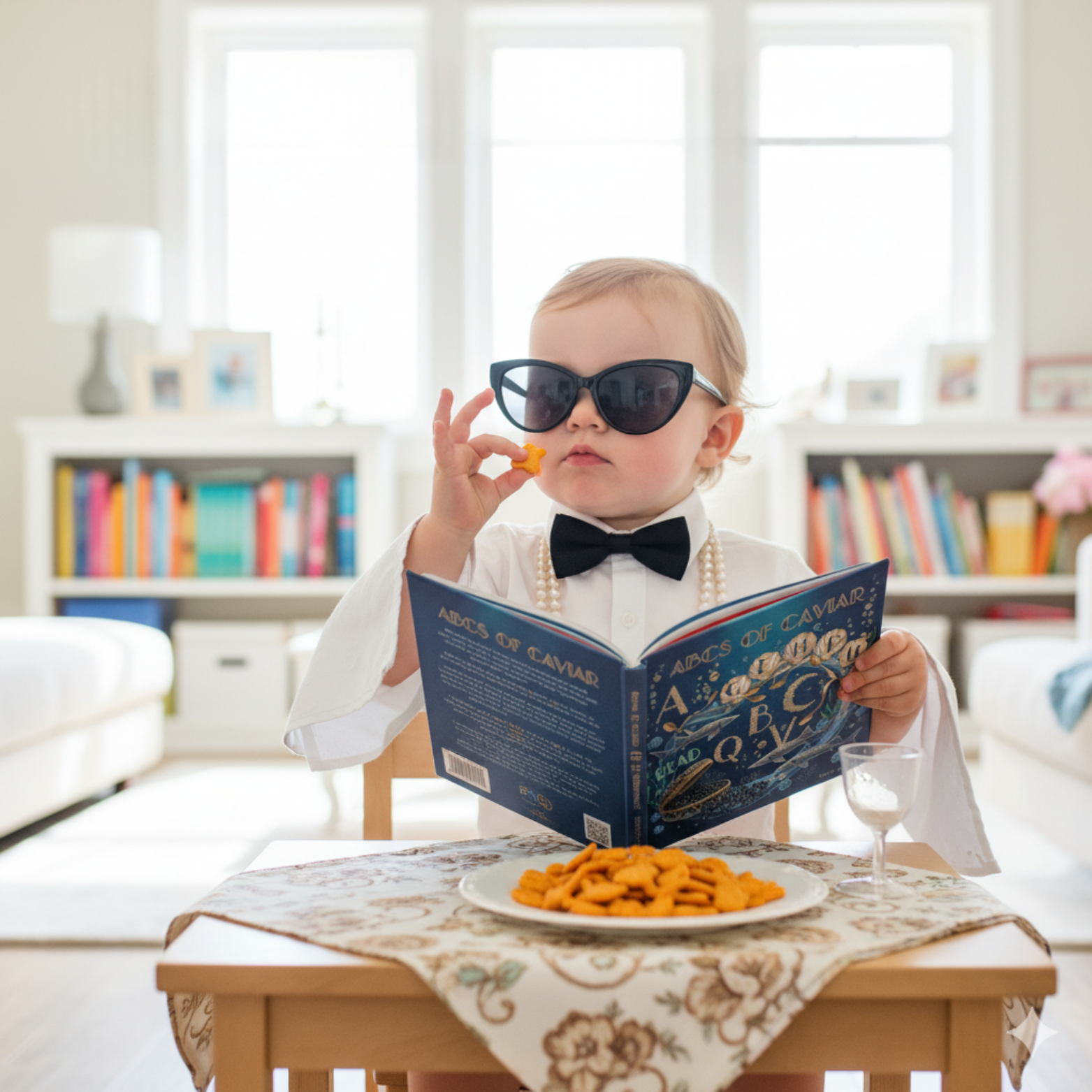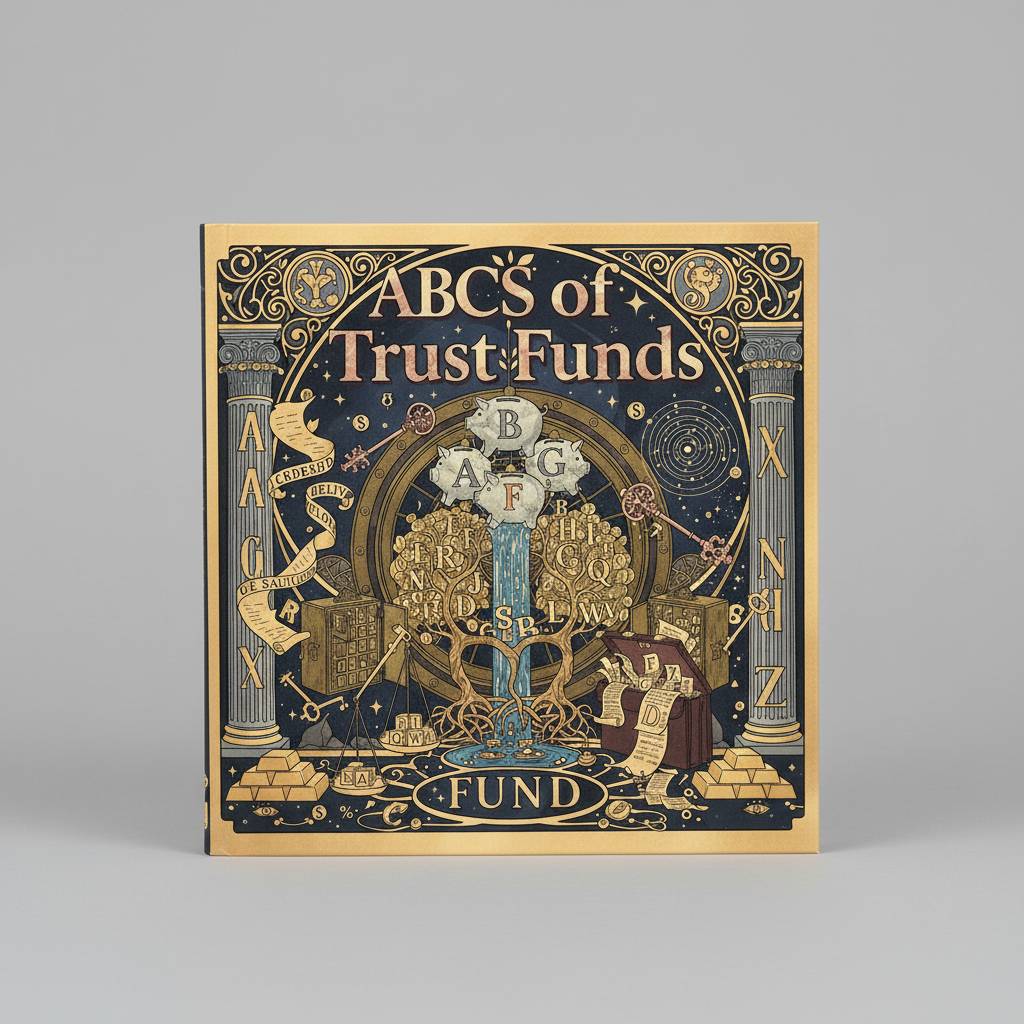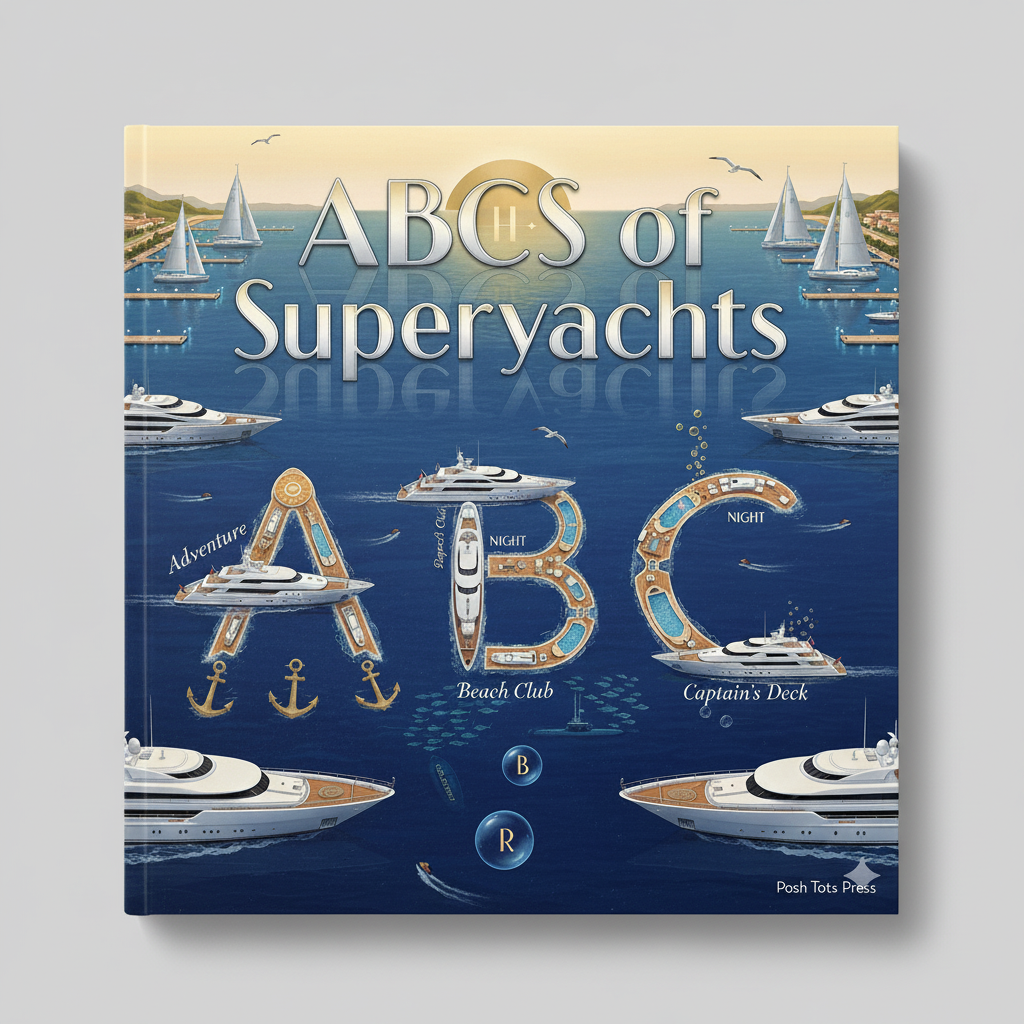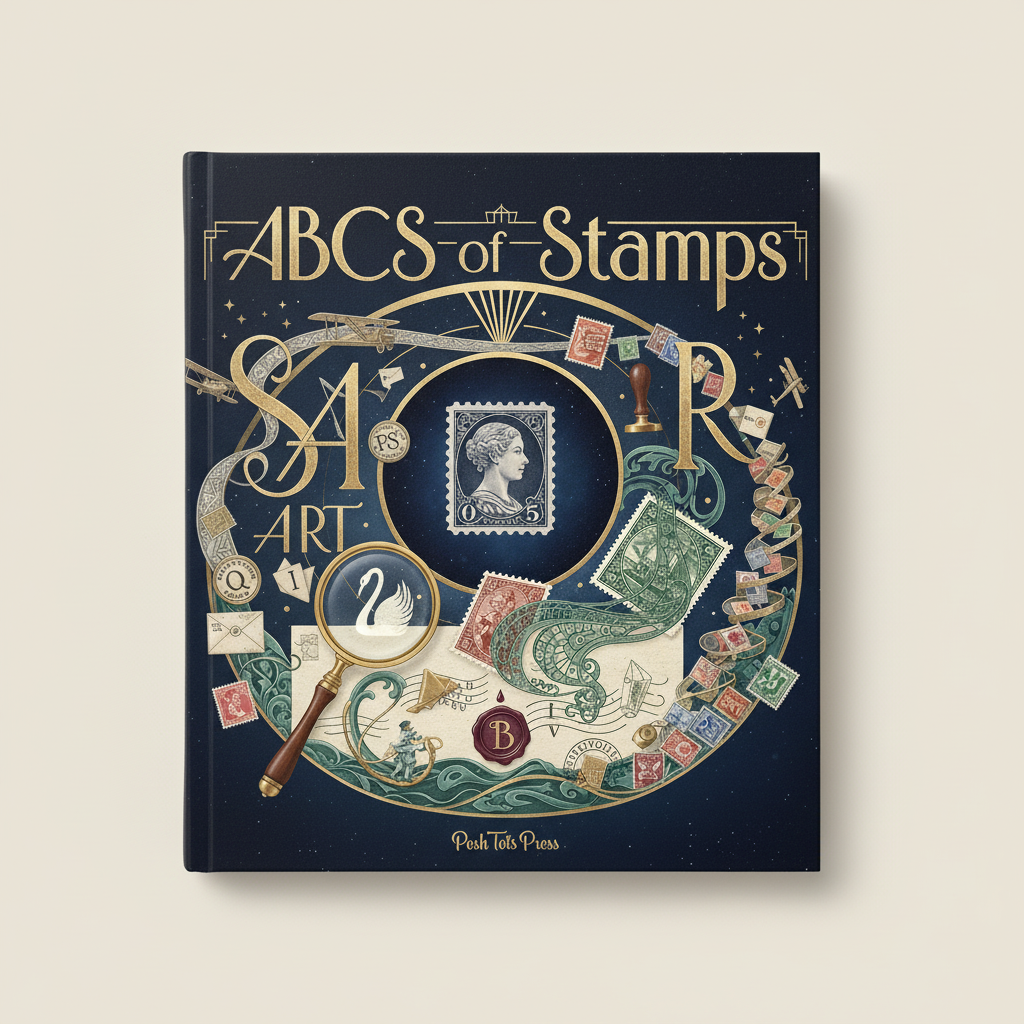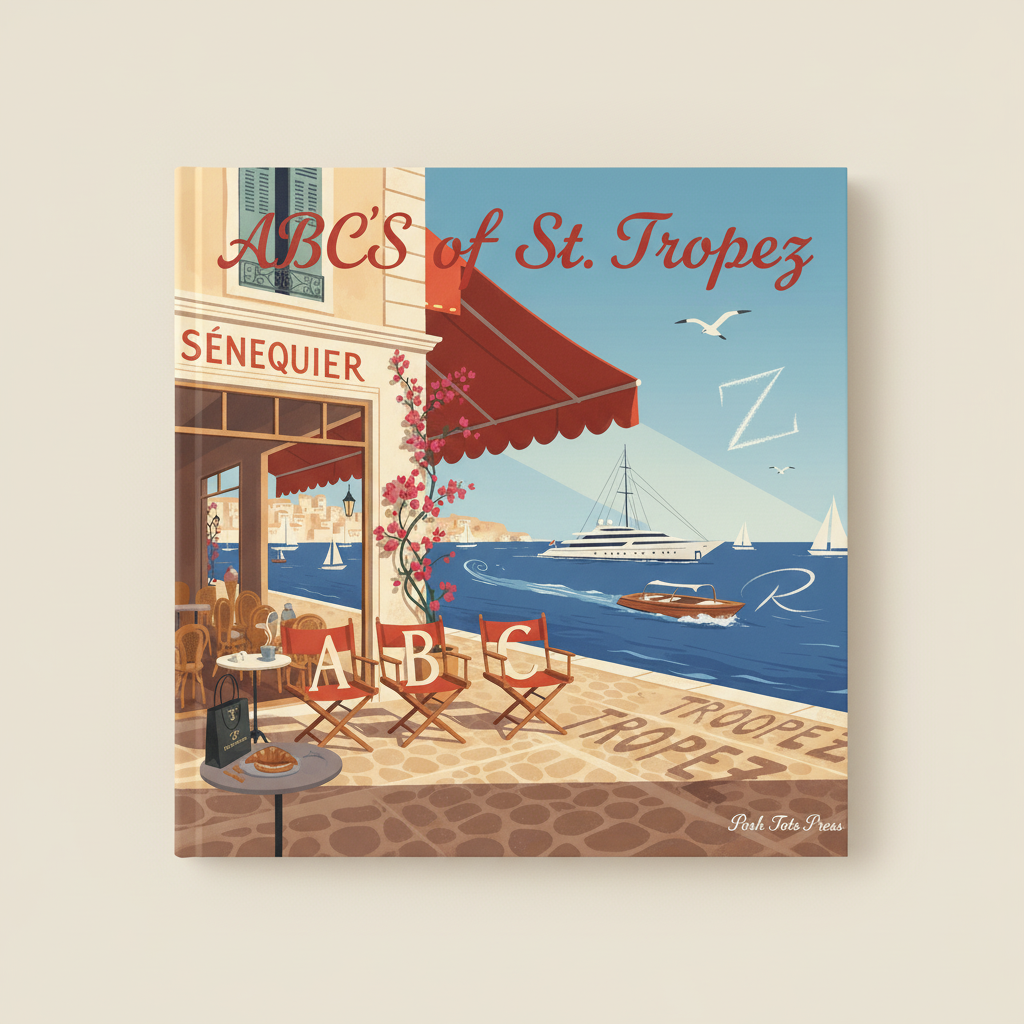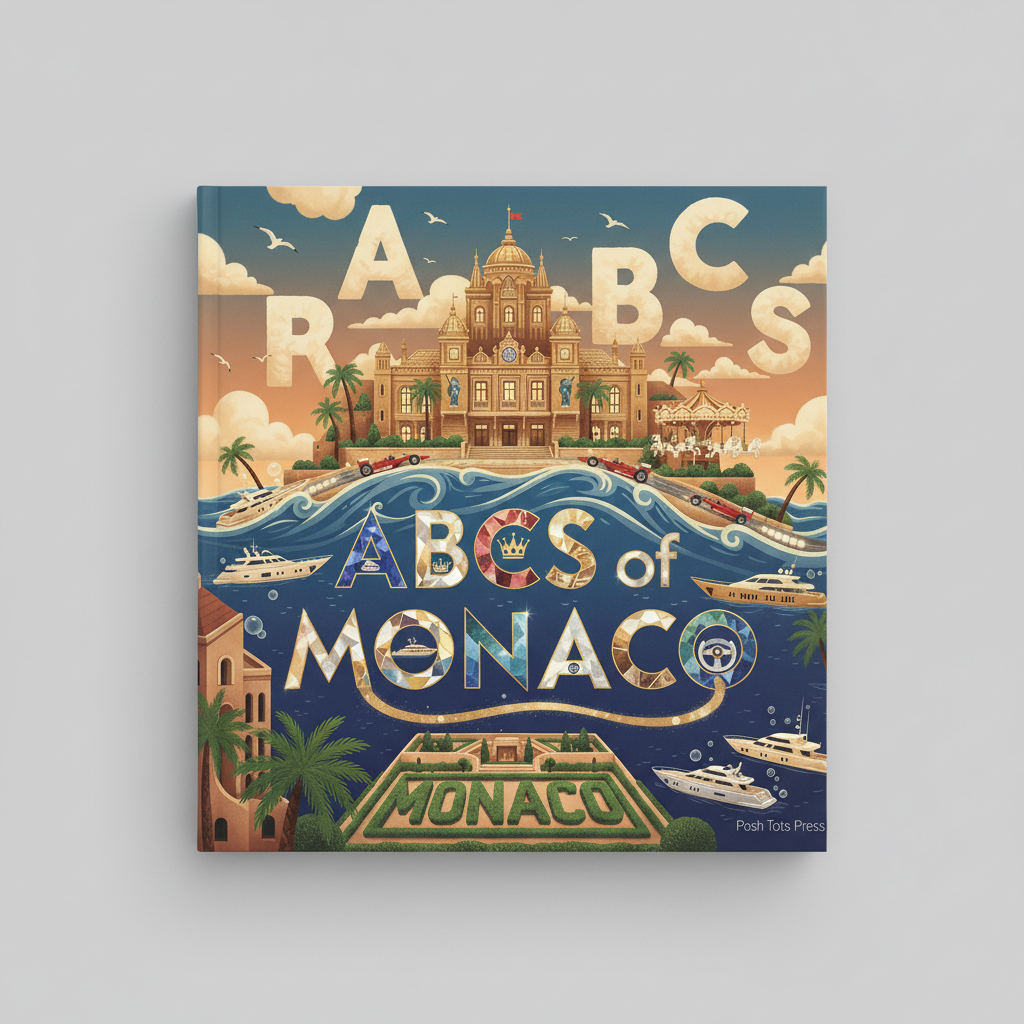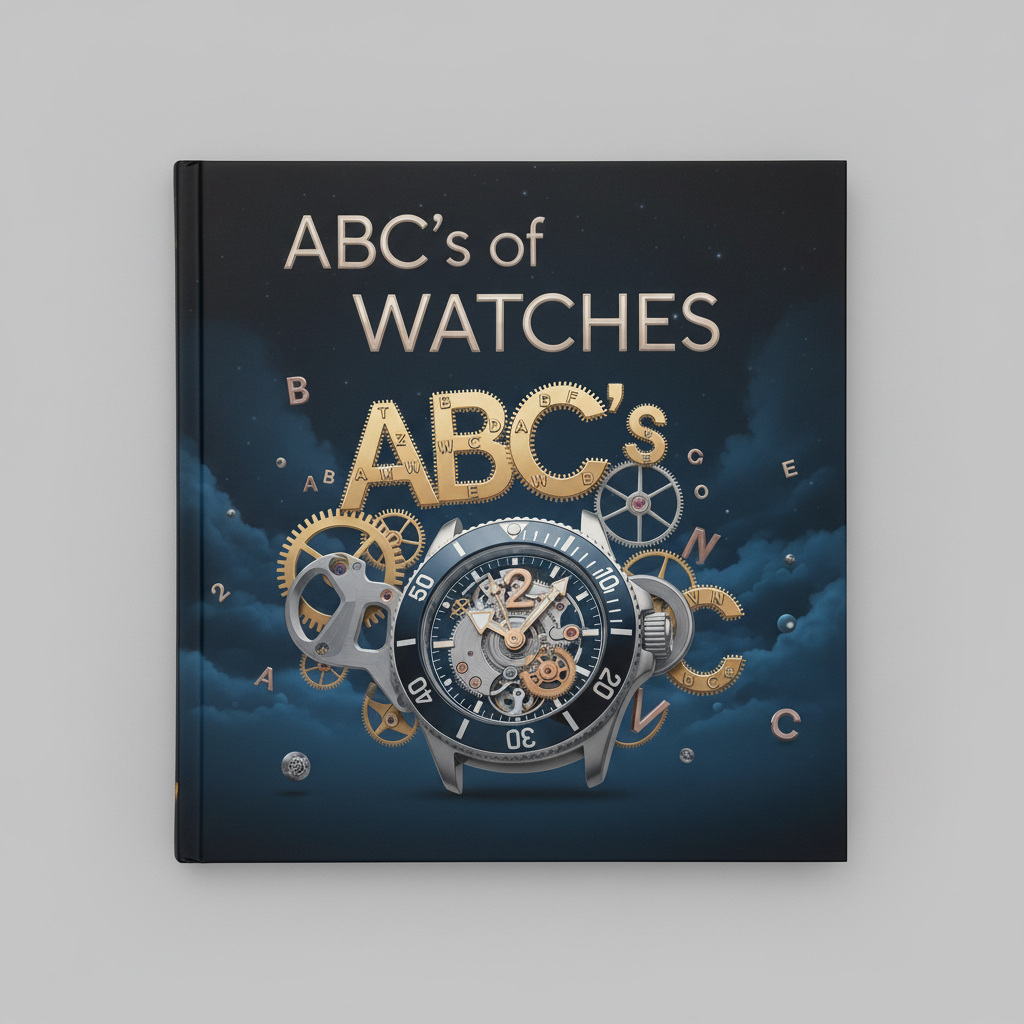Let's not dance around it: Teaching your toddler about caviar, champagne, and country estates is objectively ridiculous.
And yet, here we are.
Somewhere between the organic baby food and the sustainably sourced wooden toys, parents started buying ABC books that teach their children about hedge funds, designer handbags, and tax havens. The horror! The audacity! The... actually kind of genius absurdity of it all?
Real Conversations We're 100% Sure Are Happening
"Mummy, can I have the Beluga?"
"Sweetie, we're at Tesco. That's tuna."
"Daddy, why doesn't our car go fast like the one in my book?"
"Because Daddy values depreciation curves and reasonable insurance premiums, that's why."
"Is that a real Birkin or an Hermès Kelly?"
[Parent slowly turns around] "You're three."
"I want to go to Monaco."
"You can't even spell Monaco."
"M-O-N-A-C-O. It's in my book."
[Parent has no comeback]

But Are We Actually Creating Monster Children?
Short answer: No.
Longer answer: Teaching your child about opera, fine art, or vintage watches doesn't automatically turn them into insufferable tiny snobs any more than teaching them about tractors turns them into farmers.
Children absorb information. They learn words. They make connections. Whether they're learning "C is for Cat" or "C is for Cryptocurrency," the educational process is identical. The only difference? One makes their grandparents laugh nervously at family gatherings.
"My son learned the alphabet from 'ABCs of Fast Cars,'" shares one parent. "Now he can identify a Lamborghini at 50 paces. Is this a necessary life skill? Absolutely not. Does it bring him joy? Completely. Do strangers find it hilarious when a three-year-old critiques their Honda? You bet."
The Luxury Paradox: It's Not About the Stuff
Here's the thing critics miss: Teaching children about luxury topics doesn't have to be about materialism.
When a toddler learns about ballet, they're learning about discipline, artistry, and centuries of cultural tradition—not just tutus and tiaras. When they learn about fine art, they're discovering color, composition, and creativity—not price tags. When they learn about watches, they're being introduced to craftsmanship, engineering, and the beauty of things made with care.
The word "luxury" has gotten a bad rap. But at its core, luxury isn't about having expensive things—it's about appreciating quality, understanding context, and recognizing value beyond the price tag.

Embracing the Absurdity
The parents buying these books aren't delusional. They know it's funny. That's half the appeal.
These are parents who can laugh at themselves while still wanting beautiful, interesting things for their children. They're self-aware enough to find humor in teaching a two-year-old about trust funds while also recognizing that expanding vocabulary and cultural awareness is genuinely valuable—regardless of the topic.
"I gave my friend 'ABCs of Tax Havens' at her baby shower," one customer shares. "Everyone lost it. She's an accountant. It was perfect. And you know what? Her daughter actually loves it. She calls the Cayman Islands 'the C place' and asks to go there. Mission accomplished?"
The Vocabulary Wins Are Real
Let's talk about the unexpected educational benefits:
Traditional ABC book: "A is for Apple. B is for Ball."
Vocabulary gained: Apple, ball.
Luxury ABC book: "A is for Art Auction. B is for Ballet."
Vocabulary gained: Art, auction, ballet, plus follow-up questions like "What's an auction?" "Why do people dance?" "Can I try?"
Suddenly you're having conversations about how auctions work, why people collect art, and what makes something valuable beyond money. You're teaching critical thinking disguised as alphabet practice.
One parent notes: "My daughter learned more about geography from 'ABCs of Monaco' than from any toddler globe. She knows it's a country, where it is, and that it's 'fancy.' Is that comprehensive geographical education? No. Is it more than she knew before? Absolutely."

When the Criticism Comes (And It Will)
"Isn't this teaching children to be materialistic?"
No more than teaching them about castles teaches them to demand a moat.
"Shouldn't children learn about 'real' things?"
Art, music, sports, and travel are real things. Just because they're associated with luxury doesn't make them imaginary.
"This is so pretentious."
And teaching your kid about dinosaurs isn't? Have you met a four-year-old paleontologist? They're insufferable. (We love them anyway.)
The reality is this: Let people parent how they want. If someone wants to teach their kid about barnyard animals, fantastic. If someone else wants to teach their kid about baroque architecture, also fantastic. Children have room in their brains for both cows AND Caravaggio.
The Joy of Not Taking It Too Seriously
At the end of the day, luxury ABC books exist in a beautiful sweet spot: They're genuinely educational, undeniably funny, and unapologetically themselves.
They're for parents who understand that you can appreciate nice things without being defined by them. Who want their kids to be curious about the world—all of it, not just the parts that seem "age-appropriate" by traditional standards. Who recognize that teaching a toddler about champagne is objectively hilarious and also... kind of interesting?

So Yes, We're Raising Tiny Snobs
But they're the best kind of tiny snobs: curious, vocabulary-rich, culturally aware tiny snobs who also eat chicken nuggets off the floor and think burps are the height of comedy.
They know what a Monet is AND what a monster truck is.
They can identify a superyacht AND still think cardboard boxes make excellent boats.
They're learning their ABCs through opera AND "Baby Shark."
The magic isn't in choosing luxury topics over traditional ones—it's in expanding the definition of what we think children can learn, understand, and find interesting.
Are we raising a generation of tiny snobs? Maybe.
Are they hilarious? Absolutely.
Are they learning? Definitely.
Are their parents having way too much fun with this? You bet.

